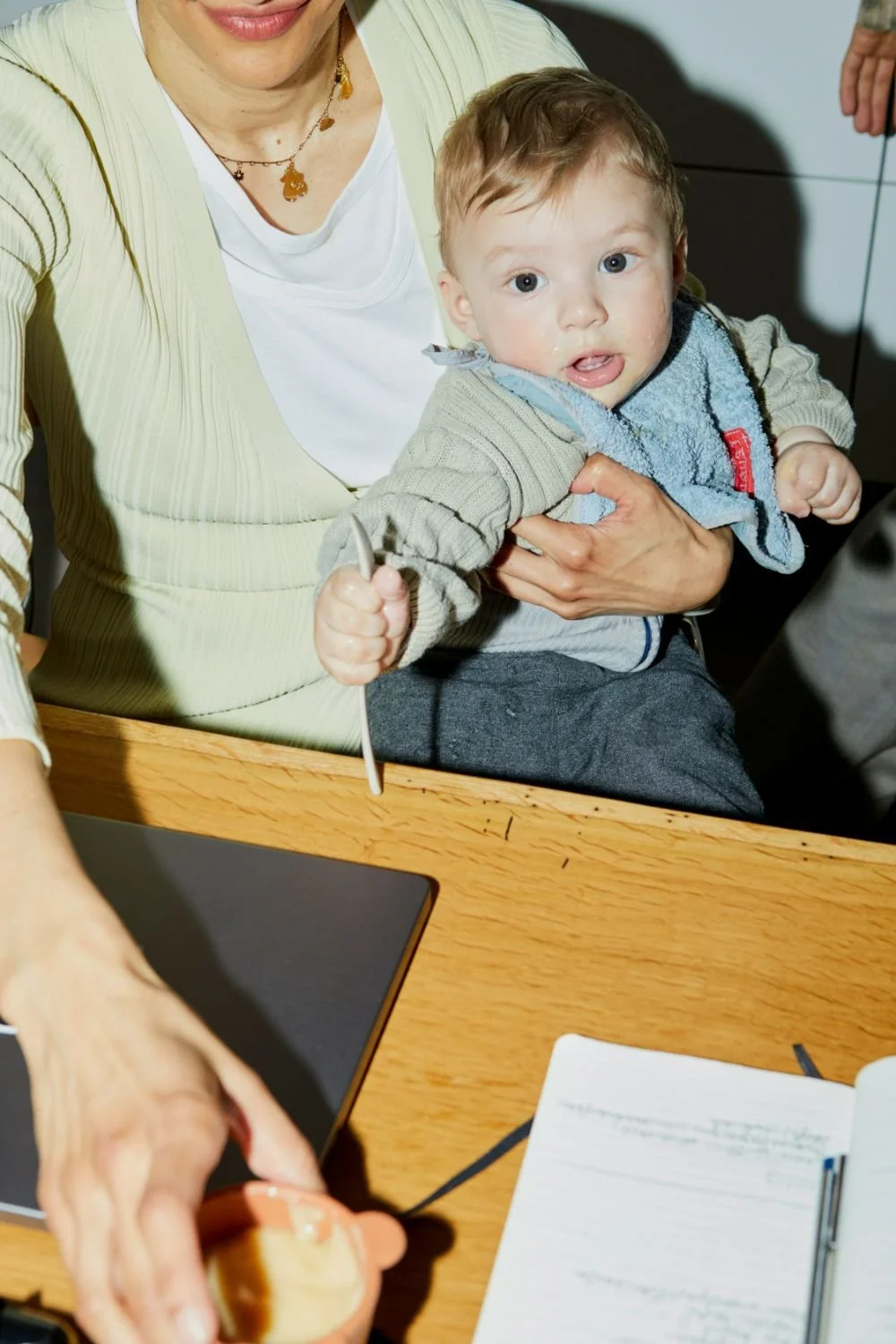The #1 Missing Piece in Pregnancy Prep
Why Registries and Birth Plans Aren’t Enough
Pinterest boards filled with nursery inspirations.
Saved reels on “what to pack in your hospital bag.”
A Notes app overflowing with baby names.
If you’re pregnant, chances are you’ve already spent countless hours planning your birth and preparing for your baby’s arrival.
And you should. Birth matters. A cozy nursery matters. Feeling ready for those first newborn days matters.
But here’s the truth no one tells you: most women skip planning for the part that matters just as much, if not more:
Postpartum care. For you.
What Most Women Forget to Plan For During Pregnancy
Pregnancy apps and hospital tours prepare you for the logistics of birth.
Baby registries prepare you for swaddles, strollers, and cute baby clothes.
But very few conversations—medical, cultural, or even social—prepare you for what happens to you after the baby arrives.
The result?
Many new mothers describe the same overwhelmed moment: home with a crying newborn, exhausted beyond belief, and completely blindsided by the lack of support.
They planned the nursery down to the exact paint colors, but never thought about:
Who would cook for them
Who can help them with chores
What recovery would feel like
How they’d navigate the tidal wave of emotions and hormones that follow birth
The real stories are sobering.
Many women describe their postpartum as “being hit by a truck.” Not exactly the cozy cuddles and blissful smiles you see on Instagram.
We recently surveyed a group of accomplished women, including lawyers, marketing consultants, CFOs, and creative directors. Every one of these very successful women was unprepared for postpartum.
Here’s how they described their postpartum experience:
“I was a mess after my oldest was born. The lack of support (and lack of a way to explain my sadness because I didn't know how to say anything other than "I'm disappointed") affected me a lot. It took me almost two years to wade through my complicated feelings.”
“I think my postpartum period lasted longer than necessary and left me energetically and physically depleted due to lack of support, or, more accurately, ‘support’ that wasn't actually helpful. Family can be well-intentioned, but their ‘help’ can backfire in big ways.”
“I did not expect how stressed my partner was going to be, which left him unable to support me emotionally and sometimes physically—even as I recovered from actual surgery. It was shocking.”
“I thought I was okay but am now experiencing burnout and depression three years later, since I don’t have family or friends near me and have felt like I have to do this on my own.”
This is why Mother First exists. To prevent more stories like this.
We believe postpartum deserves as much—if not more—attention as your birth plan or your nursery.
Why Postpartum Care Gets Overlooked
Across the globe, postpartum has been recognized as its own vital chapter: 40 days of structured rest, support, and nourishment designed to restore the mother fully.
From zuo yue zi in China to la cuarentena in Latin America, mothers were never expected to enter postpartum blindfolded and alone.
They were given a blueprint for healing, and, most importantly, a cultural understanding that postpartum care is a necessity, not a luxury.
In the U.S., the story of pregnancy ends at birth.
Culturally, we’ve normalized the idea that mothers should sacrifice, “bounce back,” or figure it out alone.
Somewhere along the way, we lost the plot.
Create Your Own Postpartum Journey
Cultural and societal changes take time. But it can start with you:
Educating yourself on what’s possible
Prioritizing your postpartum care
Putting a postpartum plan in place
Communicating your needs to your loved ones
You get to set the standard for your postpartum experience.
Here are some things you can begin to think about to ensure a positive postpartum experience.
Prepare a Meal Plan
Prepare a meal plan of warm, nutritious foods for your first few weeks postpartum.
Across cultures, the emphasis was the same: warm, easy-to-digest foods such as soups and porridges.
The goal is to allow your body to work as little as possible. Raw, uncooked foods take the body longer to digest, and cooked foods provide more energy, which is needed for healing and taking care of a newborn.
To ensure you have nutritious food ready for you during postpartum, you can:
Precook the meals and freeze them
Ask family or friends to bring you cooked foods
Order postpartum meals to be delivered to you
Hire a doula who can bring you food
Hire a postpartum nanny who lives with you and cooks for you
Whatever your budget and preferences are,come up with a meal plan that suits you before the baby arrives.
Secure Company with Knowledge You Trust
So many women describe feeling alone during postpartum, despite having loving partners or family.
The fact is, your partner can be just as clueless and stressed as you, if not more. And your family members might have their own opinions about what postpartum should be like, based on their own experience.
If you want to design a postpartum experience that suits your own personal needs and preferences, get clear on who you want around and who you want support from.
This could include:
Friends and family members who you know have you best interests at heart, free of their own personal opinions.
Online groups with experts you trust where you can ask questions.
A hired doula whom you have interviewed and vibe well with.
A postpartum nanny who is recommended by others who have had a positive postpartum experience.
A lactation consultant who can help you with breastfeeding, judgment-free.
Again, whatever your budget and preferences are—come up with a support team of people that you trust.
Receive Help with Household Chores
After giving birth—whether vaginally or by C-section—the last thing you should be worried about is dishes in the sink or laundry piling up.
Household chores may feel small, but they are often the very things that tip a recovering mother into overwhelm. Having someone take that weight off your shoulders isn’t indulgent—it’s essential.
Here’s how you can ask for support and help ahead of time:
Have an honest conversation with your partner about taking full responsibility for cleaning or errands in those early weeks postpartum.
Ask family or friends to pitch in on a rotating schedule.
Hire help—whether a weekly housecleaner, a doula who folds laundry while tending to your needs on her visits, or a live-in postpartum nanny who takes care of everything.
Whatever your situation, make a plan before the baby arrives. Think of it as building a buffer—so you can spend your limited energy on healing, resting, and bonding with your baby, not worrying about unwashed dishes and baby bottles.
The Bottom Line
At Mother First, we believe this is the kind of fundamental support every mother deserves. When you invest in your recovery, you’re not just tending to yourself—you’re laying the foundation for your baby, your family, and your future.
That’s why we’ve created a space that blends global traditions, expert insights, and lived stories, so you don’t have to navigate this alone.





